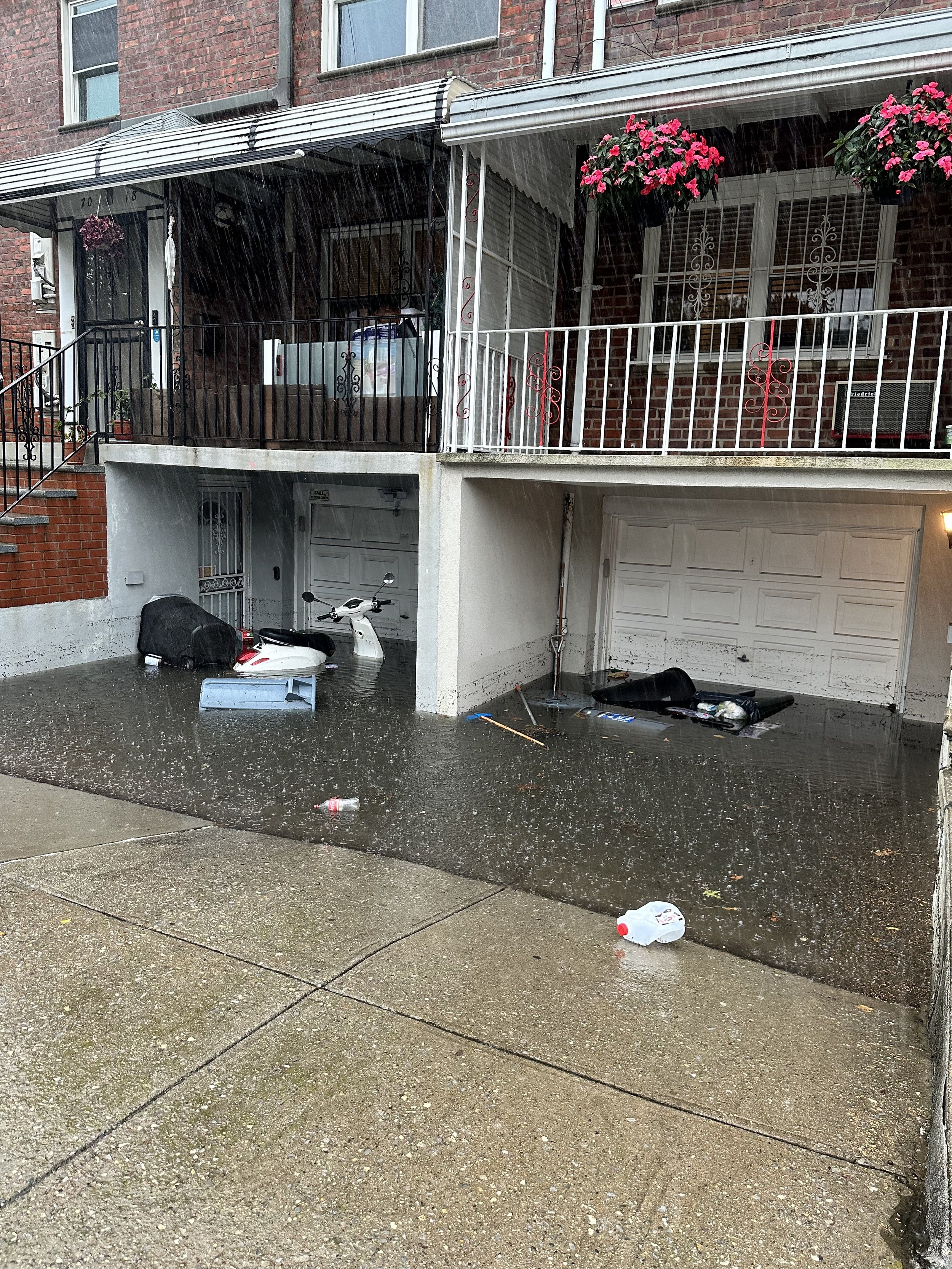
A rainy night means a sleepless night for residents of one section of East Elmhurst. They’d prefer to catch the disaster as it strikes, rather than wake up to it in the morning.
For years, residents of 77th Street and of nearby blocks in East Elmhurst say they’ve struggled with sewer water flooding their basements and apartments, causing them anxiety, health issues and thousands of dollars in damages. Most of the flooding comes after just an average rain, they say.
As climate change brings heavier and more frequent rainfall, locals are looking for solutions, which may not be as straightforward – or as immediate – as they might hope.
“On our block, sewer backup is what impacts all of us,” said Nabil Jamaleddine, an East Elmhurst local and software engineer who has lived in the area since 2017.
Pretty much whenever it rains, locals on 77th Street and surrounding blocks in the neighborhood, stress about sewer surges, which occur when the sewer system and catch basins can’t keep up with the demand brought on by the falling rain.
Heavy rain or a dangerous storm is bad, but just a little bit of rain, Jamaleddine says, can create an immense problem.
“Any amount of sewage in the basement, over a few inches, or even half an inch, is just terrible to deal with,” he said.
The flooding often leads to mold, which becomes a problem in itself. Cleaning the damage caused by the flooding creates more worries due to toxins in the sewer water that find their way into East Elmhurst basements.
Alvaro Cruz, another resident, got an infection in his legs several months after cleaning his basement after Hurricane Ida, which he attests to the dirty water.
“I was in the hospital three times,” he said.
The dangers of the water’s contents usually result in almost everything it touches, including important belongings and family heirlooms, needing to be thrown out.
Draining the basement is just half the battle – wallets are also drained.
“[I’m] just pouring money into this thing just to try to fix it,” said Jamaleddine. “But that thing gets very expensive. A lot of neighbors, they just don't have the funds to do this sort of thing.”
The problems first began to be noticed by residents after Hurricane Ida in 2021, which destroyed basements and flooded areas across the city, leaving 13 dead in the five boroughs, including 11 people from Queens.
The response to tha storm prompted a resurrected conversation on storm readiness, congressional hearings and even a visit from President Joe Biden, who stopped by a flooded block in East Elmhurst.




8 comments:
Better off living in public subsidized housing where you don’t have a utility bill.
We truly live in clown world.
Is the NYC Government FAILING at everything that it does ?
Asking for a friend...
Shows you the priorities of the officials in our City when they prioritize and provide aid to non citizens.
Wokeness and D.E.I. Will Cause more floods.
Woke derangement syndrome is real.
Prove me wrong…
"As climate change brings heavier and more frequent rainfall"
Lol, not. The most rain since 2010 was in fact in 2011 and we haven't come close to it since. If you look at single day rain records ("all time" meaning "since we started counting"), the most recent record was in 2007. Most records are prior to the 1990s. The wettest summer was in 1955. Wettest winter, 1979. Wettest spring, 2007. Wettest fall, 1999. In other words, there is NO PATTERN whatsoever.
So no, "climate change" is not making it wetter. It's all completely random.
we only have 6 years left according to Sandy
Post a Comment